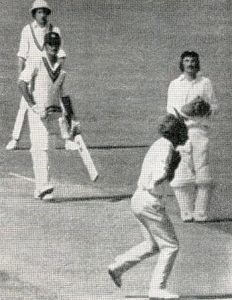Ajit Wadekar led India to first-ever series wins in England and the West Indies. The dressing room was very quiet. Not a word was said as he came in and sat down. He removed his cap and took off his gloves and leg guards. He stretched his legs and shook his head slowly from side to side. Not only that, but he sat staring straight ahead for some time. Then he came to a sudden decision. He jumped onto the massage table, had a quick furtive look at the game going on out in the middle, and went to sleep.
The man was Ajit Wadekar, India’s skipper, and the occasion was the final Test at the Oval in 1971. He had just been run out first thing in the morning without a run being added to India’s overnight score of 95 for two. India, needing another 80 runs to win, very badly wanted Wadekar to stay and guide them to victory. As it turned out, India that day did without Wadekar’s batsmanship, and his confidence in his own batsmen was completely justified. Permanent frown as he is cool, very cool. I have yet to see him fly off the handle.

Even in a crisis, Ajit Wadekar keeps his wits about him, and the only thing that gives him away is the frown. He wears it on his face. In India, a captain is under tremendous pressure. Not only are thousands of spectators judging his every move, but the press, many of whom have never even played club cricket, are just waiting to pounce on him and tear him to pieces. He knows this, and so the frown has A. L. Wadekar: 34 Tests for India, 2031 runs, two series victories over England come to stay, and the image of the projects is that of a grim, humorless person. Which he is not.
In the Bombay Test a year ago, Ajit Wadekar and Farokh Engineer were going great guns. Tony Greig bowled four balls to Ajit wide down the offside. Ajit pretended to take out the stump and stick it in where Greig had bowled the earlier balls. Greig’s reaction was typical, and he bowled the next ball even wider. When Greig turned to bowl the last ball, he found Ajit taking guard outside the off-stump! Then there was the instance during a question-answer series when he was asked who he thought would succeed him as India’s skipper. Pat came to the reply: ‘My son, of course.’


